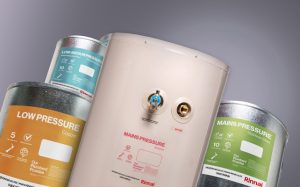R290 refrigerant, also known as propane, has gained attention for its environmental benefits compared to traditional refrigerants like R134a or R404a. Here are some of its advantages:
- Low Global Warming Potential (GWP): GWP measures the heat trapped in the atmosphere as a result of the release of a certain amount of gas. R290 has a GWP which is negligible and significantly lower than other commonly used refrigerants, contributing less to global warming and climate change.
- Ozone Friendly: R290 is a hydrocarbon-based refrigerant, which means it does not contain any ozone-depleting substances. This makes it environmentally friendly and compliant with regulations aimed at protecting the ozone layer, such as the Montreal Protocol.
- Energy Efficiency: Propane has excellent thermodynamic properties, which can lead to improved energy efficiency in refrigeration and heat pump/air conditioning systems. This efficiency can result in lower energy consumption and operational costs over the long term.
- Natural and Abundant: Propane is a natural substance and is widely available. It can be produced from natural gas processing or during the refining of crude oil. Its availability makes it a sustainable option for heat pump/air conditioning systems.
- Safety: While propane is flammable, it is considered safe when used in properly designed and maintained systems. Modern refrigeration systems utilising R290 are designed with safety features to mitigate any risks associated with its flammability.
- Regulatory Compliance: As regulations around the world become stricter regarding the use of high-GWP refrigerants, R290 provides a compliant alternative for manufacturers and businesses looking to reduce their environmental impact and meet regulatory requirements.
R290 refrigerant offers a solution for environmentally conscious refrigeration and heat pump/air conditioning applications, providing both environmental benefits and energy efficiency.















